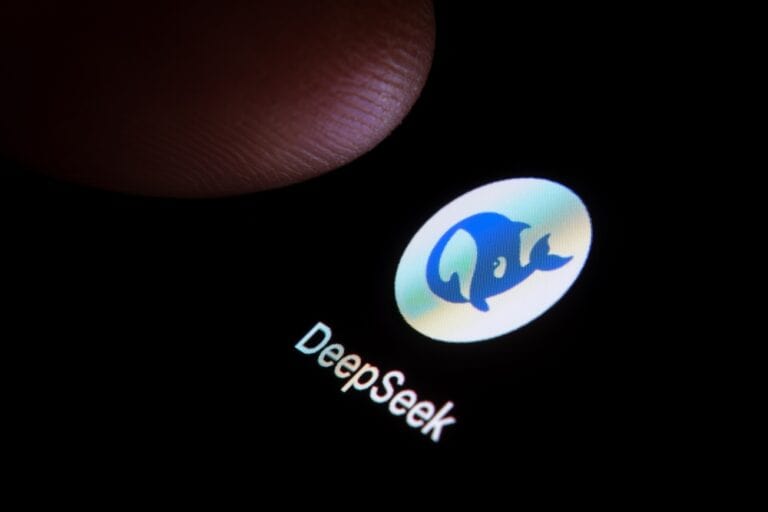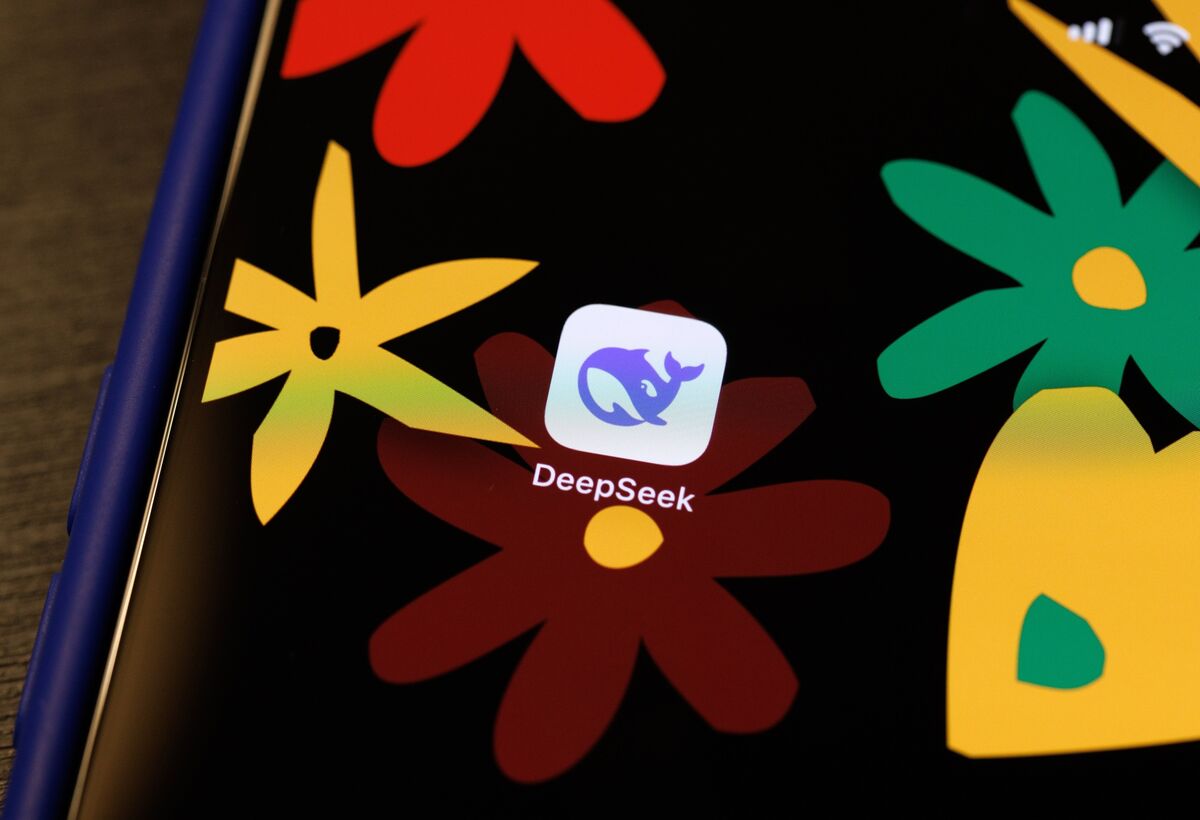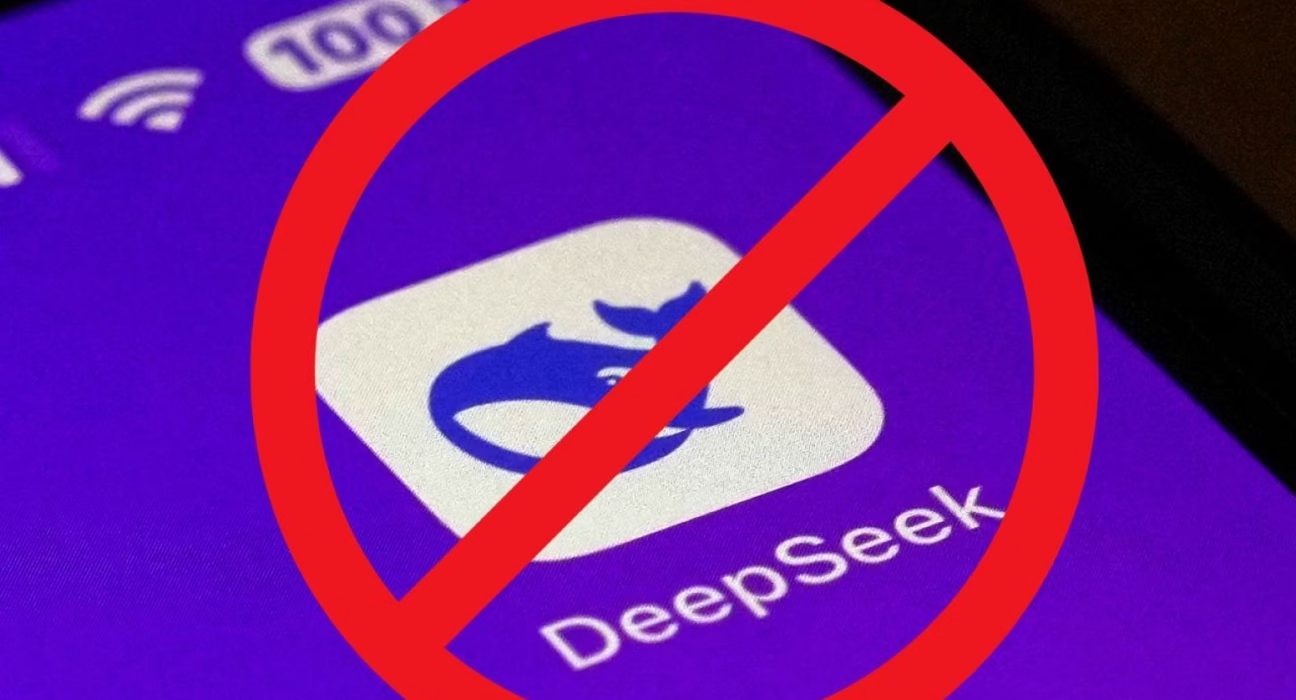Germany’s Stance: Unpacking the Germany DeepSeek App Ban Reasons and its EU Implications
Estimated reading time: 8 minutes
Key Takeaways
- Germany has formally requested Apple and Google to remove the Chinese AI app DeepSeek from their app stores.
- The primary Germany DeepSeek app ban reasons center on concerns over unlawful data transfer to China and insufficient data protection.
- DeepSeek is accused of failing to comply with stringent EU data privacy laws AI apps, particularly the General Data Protection Regulation (GDPR).
- This action sets a significant precedent, increasing the Chinese AI app European ban risk and scrutiny across the continent.
- The case underscores the critical balance between technological innovation and robust data protection frameworks within the EU.
Table of contents
- Germany’s Stance: Unpacking the Germany DeepSeek App Ban Reasons and its EU Implications
- Key Takeaways
- I. Introduction
- II. The Core Controversy: Why Germany Wants DeepSeek Banned
- What is DeepSeek?
- Germany’s Main Reasons for the Ban (Germany DeepSeek app ban reasons)
- III. The Legal Framework: EU data privacy laws AI apps
- Role of EU Data Privacy Laws (EU data privacy laws AI apps)
- DeepSeek’s Alleged Violations
- Legal Basis for Ban Requests
- IV. Potential Consequences: Apple Google DeepSeek removal impact
- Impact on App Store Access (Apple Google DeepSeek removal impact)
- Effect on DeepSeek AI as a Company
- V. Broader Implications: The Landscape for Chinese AI app European ban risk
- Wider Scrutiny of Chinese AI Apps (Chinese AI app European ban risk)
- Regulatory Trends and Future Outlook
- VI. Conclusion
- Frequently Asked Questions
I. Introduction
A significant development has just unfolded in the European tech landscape: Germany has formally requested that tech giants Apple and Google remove the Chinese-developed AI app, DeepSeek, from their app stores. This bold move isn’t an isolated incident; rather, it’s part of a burgeoning trend across Europe where the regulation of non-EU artificial intelligence applications, particularly those with strong data ties to China, has become a central focus. This is especially true amid the continent’s stringent data protection standards, which continue to evolve to tackle new challenges, as explored in the rise of AI-powered smartphones. The primary goal of this blog post is to comprehensively explore the specific Germany DeepSeek app ban reasons and dissect its broader implications for data privacy and the intricate landscape of AI regulation across Europe.

As AI innovation races forward, policymakers grapple with balancing rapid technological advancement with fundamental rights, most notably data privacy. This case introduces a critical examination of the equilibrium between technological innovation, robust EU data privacy laws AI apps, and the rising Chinese AI app European ban risk. Understanding Germany’s actions provides a lens through which to view the future of global AI services operating within highly regulated markets.
II. The Core Controversy: Why Germany Wants DeepSeek Banned
What is DeepSeek?
DeepSeek is a prominent generative AI application, originating from China, that has rapidly garnered international attention for its advanced capabilities and swift ascent in popularity. It’s often lauded for its sophisticated AI models, capable of performing a wide range of tasks from content generation to complex problem-solving. Notably, DeepSeek has been highlighted in tech circles for being developed at a *fraction of the cost* compared to many of its US-based competitors, such as OpenAI’s ChatGPT. Its broad availability across global app stores initially propelled its reach, allowing users worldwide to access its powerful features. (Source: AppleInsider)
Germany’s Main Reasons for the Ban (Germany DeepSeek app ban reasons)
German regulators have articulated clear and compelling reasons for their request to ban DeepSeek, asserting that the app poses unacceptable risks related to the transfer and storage of user data. These concerns primarily revolve around national security and, most crucially, data privacy – an area where Europe maintains some of the world’s strictest standards. The ongoing discussions about cybersecurity threats in 2025 further underscore the vigilance required in safeguarding sensitive information, as detailed in explosive cybersecurity threats.
- Reason 1: Unlawful Export of Personal Data.
The core of Germany’s argument lies in the alleged unlawful export of personal data. Meike Kamp, the German data protection commissioner, explicitly stated that DeepSeek transfers users’ information to China. This action, according to German authorities, constitutes an unlawful export of personal data from the European Union, directly contravening established data protection frameworks. (Source: TechCrunch) - Reason 2: Failure to Provide Sufficient Data Protection Evidence.
A significant contributing factor to the ban request is DeepSeek’s alleged failure to provide “convincing evidence” that user data is protected in accordance with stringent EU laws. German regulators pressed the company for assurances and documentation regarding their data handling practices, but DeepSeek reportedly *did not comply* with requests to address these issues or voluntarily withdraw its app, escalating the regulatory action. (Source: TechCrunch and AppleInsider) - Reason 3: Risk of Chinese Government Access (DeepSeek AI data transfer to China).
The most significant underlying concern related to DeepSeek AI data transfer to China stems from Chinese law. Under the legal framework in China, authorities can compel companies based within their jurisdiction to provide access to personal data they hold, even if that data belongs to foreign users. This means that data from German users, once transferred to Chinese servers, could potentially be subjected to surveillance or access by Chinese authorities. Such an outcome is fundamentally at odds with the robust and protective European privacy standards that prioritize individual data rights. This risk is a central theme in many data sovereignty debates, including the complex legal battles over government data access, as seen with WhatsApp and the UK government. (Source: TechCrunch and AppleInsider)

Adding weight to these concerns, independent security analyses have reportedly found that both DeepSeek’s iOS and Android versions were transmitting data to Chinese-owned servers. Alarmingly, the Android application was specifically noted as being less secure, raising further red flags for regulators prioritizing user data integrity. This highlights the ongoing importance of secure smartphone usage and robust app security. (Source: AppleInsider)
III. The Legal Framework: EU data privacy laws AI apps
Role of EU Data Privacy Laws (EU data privacy laws AI apps)
The bedrock of data privacy regulation across Europe, particularly concerning EU data privacy laws AI apps, is the General Data Protection Regulation (GDPR). Enacted in 2018, GDPR revolutionized how personal data is collected, processed, and stored for individuals within the European Union, regardless of where the data processing company is located globally. Its relevance cannot be overstated in this DeepSeek case. Under GDPR, personal data collected from EU residents can only be transferred to countries outside the EU if those countries are deemed to have “adequate” data protection standards—meaning they offer a level of protection comparable to EU law. Alternatively, transfers can occur if specific legal safeguards are put in place, such as standard contractual clauses or binding corporate rules, to ensure data remains protected even when moving beyond EU borders. Understanding new AI regulations often begins with GDPR’s foundational principles, as discussed in detail in guides like Understanding New AI Regulations. (Source: TechCrunch)

DeepSeek’s Alleged Violations
In light of these stringent regulations, DeepSeek stands accused of significant violations. German authorities assert that the app has not offered sufficient guarantees regarding its data transfers outside the EU. This means the company allegedly failed to demonstrate that it has implemented the necessary legal safeguards or that China, where the data is transferred, provides an “adequate” level of data protection comparable to GDPR. Furthermore, DeepSeek’s data processing practices are deemed by German regulators not to align with GDPR requirements, particularly concerning transparency, user consent, and data minimization principles. German authorities explicitly stated that DeepSeek *could not demonstrate* that German users’ data would be protected to the degree mandated by EU law. This indicates a clear and fundamental breach of GDPR’s core principles, which demand accountability and robust protection for EU citizens’ personal information. (Source: TechCrunch and AppleInsider)
Legal Basis for Ban Requests
This stark lack of compliance with GDPR forms the unequivocal legal basis for Germany’s request to app store providers—Apple and Google—to remove DeepSeek. GDPR is not merely a recommendation; it is a binding regulation that empowers individual EU member states, like Germany, to take direct action to block services and applications that do not adhere to its privacy rules. This enforcement mechanism underscores the EU’s commitment to upholding its data protection standards and preventing unlawful data transfers. The ability for national data protection authorities to issue such requests is a powerful tool, reflecting the comprehensive nature of EU data governance, as seen in evolving regulations like UK AI regulations. Germany’s move is a direct application of this enforcement power, demonstrating that non-compliance carries severe consequences for market access within the EU. (Source: TechCrunch and AppleInsider)

IV. Potential Consequences: Apple Google DeepSeek removal impact
Impact on App Store Access (Apple Google DeepSeek removal impact)
The immediate and most tangible Apple Google DeepSeek removal impact will be felt by users in Germany. If Apple and Google comply with Germany’s request—a highly probable outcome given their history of compliance with regulatory directives in major markets (for instance, Apple’s previous legal entanglements and compliance in Italy, as noted in discussions around Apple being sued over Siri AI delays)—DeepSeek will become immediately unavailable to German users through official app stores. This means new downloads will cease, and existing users might find the app’s functionality curtailed or even blocked entirely. This action sets a significant and influential precedent for further removals in other European markets. Other EU member states, observing Germany’s successful enforcement, might initiate similar inquiries or outright bans if DeepSeek’s data practices violate their national interpretations of GDPR. (Source: TechCrunch and AppleInsider)

The immediate implications for existing DeepSeek users in Germany are severe: they would effectively lose access to the application, potentially disrupting their workflows or personal use. Beyond Germany, the concern is that this ban could readily extend to other EU countries where privacy inquiries are already underway or could be triggered by this precedent. This creates a domino effect, potentially fragmenting DeepSeek’s access across the unified European market.
Effect on DeepSeek AI as a Company
For DeepSeek AI as a company, the ramifications are substantial. Their operational capacity in Europe would be sharply restricted, effectively cutting off access to a significant and economically powerful user base. Europe represents a crucial market for tech companies, and losing access to it would severely hamper DeepSeek’s growth ambitions and revenue streams on the continent. Beyond the immediate financial impact, this ban could significantly damage the company’s reputation globally. Being blacklisted by a major European economy like Germany sends a strong signal about a company’s data privacy practices, potentially deterring users and regulators in other regions from trusting its services. This incident starkly illustrates the increasing challenges faced by non-EU apps in navigating Europe’s stringent regulatory landscape, especially when user data is processed or stored in jurisdictions with differing legal norms and governmental access provisions. It forces companies to confront the fundamental conflict between rapid global expansion and adherence to diverse, often strict, national and regional data sovereignty requirements.
V. Broader Implications: The Landscape for Chinese AI app European ban risk
Wider Scrutiny of Chinese AI Apps (Chinese AI app European ban risk)
The DeepSeek case is far from an isolated incident; rather, it is a quintessential example within the broader context of intensified scrutiny faced by non-EU, and particularly Chinese, AI applications in Europe. The controversy surrounding DeepSeek exemplifies a larger European trend: increasing regulatory pressure on Chinese-developed AI apps, primarily driven by deep-seated concerns over data sovereignty, user privacy, and potential government access to sensitive information. This vigilance is becoming a critical challenge for global technology, as highlighted in discussions about critical AI challenges in tech 2025. (Source: 9to5Mac and CGTN)

This pattern of increasing caution across the continent is not new. Consider these preceding actions:
- Italy’s Precedent: Italy previously banned DeepSeek for strikingly similar reasons, specifically citing non-compliance with GDPR and concerns over data transfers. This established a clear precedent for other EU nations.
- Netherlands’ Restrictions: The Netherlands, while not imposing a full consumer ban, took a firm stance by banning DeepSeek from *government devices*. This move underscores the heightened national security implications perceived with apps that may facilitate data access by foreign governments.
(Source: AppleInsider) These examples paint a consistent picture: European nations are collectively signaling their commitment to protecting their citizens’ data from external influences, especially when those influences originate from jurisdictions with less stringent privacy frameworks or where state access to data is legally mandated.
Regulatory Trends and Future Outlook
Looking ahead, it’s highly probable that European authorities will continue to prioritize user privacy and data sovereignty, reinforcing the Chinese AI app European ban risk. This commitment could lead to further bans or significant restrictions on apps—not just from China, but from any country—that cannot demonstrably prove they provide “adequate” data protection standards comparable to EU law. The regulatory landscape is evolving, and compliance is no longer an optional add-on but a fundamental prerequisite for market entry and sustained operation within the EU. (Source: TechCrunch and AppleInsider)

The DeepSeek case provides critical insights into future trends for AI companies operating globally. It highlights the mounting risks for Chinese AI companies in particular, suggesting that mere market presence is insufficient without robust, provable compliance. To mitigate these risks and maintain market access, such companies will increasingly need to adopt strategies that include:
- Strict GDPR Compliance: Moving beyond token gestures to fully embed GDPR principles into their global data handling and processing operations.
- Local Data Processing and Storage: A strong push towards establishing data centers and processing user data *within* the EU. This “data localization” approach can significantly alleviate concerns about cross-border data transfers and foreign government access.
- Increased Transparency: Being far more transparent about their data flows, security measures, and third-party affiliations to build trust with both users and regulators.
Ultimately, the DeepSeek episode serves as a powerful signal that the era of unfettered global data flow is giving way to a more regulated, privacy-centric digital environment, particularly within the EU. Non-EU companies must adapt, or face significant barriers to one of the world’s largest and most discerning markets.
VI. Conclusion
In summary, Germany’s request for Apple and Google to remove the DeepSeek AI app from their stores sends a clear, unequivocal message. The core Germany DeepSeek app ban reasons are deeply rooted in profound concerns over data privacy, specifically the unlawful transfer of European user data to servers in China. This action unequivocally underscores the unwavering importance and strict enforcement of EU data privacy laws AI apps, particularly the comprehensive General Data Protection Regulation (GDPR). The legal risks associated with transferring European user data to jurisdictions where it could be subject to foreign government access are deemed unacceptable, and this case highlights the critical need for companies to uphold the highest standards of data protection.
This episode reinforces the critical balance that must be struck in the digital era: the rapid pace of technological innovation in AI must not come at the expense of robust data protection frameworks and fundamental privacy rights. The DeepSeek case is more than just a regulatory action against one app; it signals a broader, strategic shift within the EU towards prioritizing robust data protection and digital sovereignty. The evolving relationship between global tech companies and European regulatory bodies will undoubtedly continue to be defined by these principles, shaping how AI services are developed, deployed, and accessed worldwide. (Source: TechCrunch and AppleInsider)
Frequently Asked Questions
- Why did Germany request the ban of DeepSeek AI?
Germany requested the ban due to concerns over DeepSeek unlawfully transferring user data to China and failing to provide sufficient evidence that user data is protected according to EU standards, particularly GDPR.
- What are the EU data privacy laws relevant to AI apps like DeepSeek?
The primary law is the General Data Protection Regulation (GDPR), which dictates strict rules for the collection, processing, and transfer of personal data of EU residents. It requires “adequate” data protection standards for data transferred outside the EU.
- What is the risk of DeepSeek AI data transfer to China?
Under Chinese law, authorities can compel companies based in China to provide access to personal data. This creates a risk that German users’ data, once transferred, could be accessed by Chinese authorities, which conflicts with European privacy standards.
- Will Apple and Google comply with Germany’s request?
It is highly likely. Apple and Google have a history of complying with regulatory requests in major markets to avoid legal disputes and fines. Similar actions have been taken in other EU countries for related reasons.
- Does this ban affect other Chinese AI apps in Europe?
Yes, the DeepSeek case sets a significant precedent. It indicates increased regulatory scrutiny and a heightened “Chinese AI app European ban risk” for any non-EU apps that cannot demonstrate full compliance with EU data privacy laws and standards.






